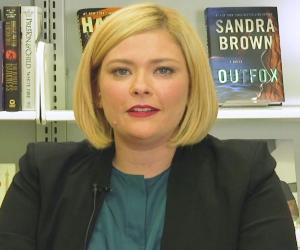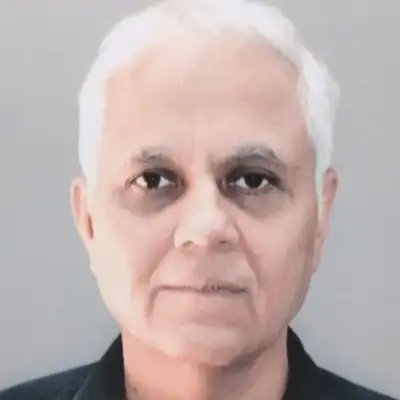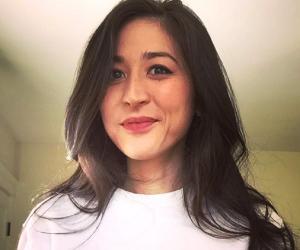Childhood, Early Life & Career
Susannah Cahalan was born in 1985. She had applied for an internship at the 'New York Post' when she was in her senior year of high school.
She enjoyed writing and reading since she was in elementary school. In 2003, she joined 'Washington University' in St. Louis. In, 2007 she graduated with a B.S. in English literature.
During her university years, she began working as a news reporter for the tabloid 'New York Post.' However, she started as an office assistant and was mostly found making coffee for the employees, handing out papers, and sorting mails.
She started working full-time after graduating from the university. She has also worked for 'The Czech Business Weekly' during her junior year of college abroad.
Cahalan has produced content over a range of topics for the tabloid. She now primarily covers books for the tabloid's postscript section.
Many of her works have been featured in 'The New York Times' and 'The Czech Business Weekly.'
Continue Reading Below
The Illness
Cahalan was 24 when she began experiencing numbness and paranoia. She also experienced sensitivity to light and displayed erratic behavior. As mentioned in her memoir, she would often have severe migraines even at the sight of the neon signs of 'Times Square' and felt the walls of her office coming alive. Initially, she believed it to was due to work pressure.
Unfortunately, her condition worsened, and she began hallucinating. She also had a major seizure attack. Her personality disorder and psychosis became more prominent and eventually transitioned to catatonia.
She would often drool and was always suffering from fatigue. Her tongue would twist while speaking. For about a month, her condition remained a medical mystery.
The first neurologist that Cahalan had consulted found her perfectly fine. Another psychiatrist diagnosed her condition as bipolar disorder and prescribed medication. Some of her doctors even came up with theories that suggested she was "partying too much" and that she had schizoaffective disorder.
She went to another neurologist, perhaps the best in the city, who suggested her situation was due to "alcohol withdrawal syndrome" and prescribed medication that was different from her previous course.
Unfortunately, none of them helped fix her condition. On the contrary, her condition deteriorated further. Finally, after another major seizure, which was near-fatal, according to her boyfriend, she was admitted to the epilepsy ward of the ‘NYU’ hospital.
The doctors at the hospital, too, could not identify her illness at first. Sadly, Cahalan was living like a zombie. By that time, she had already undergone blood tests worth a million dollars. Her brain scans, too, proved to be indecisive.
Cahalan and her parents saw a ray of light when Souhel Najjar, a Syrian–American neurologist, found out that she had been wrongly diagnosed with bipolar disorder.
Dr. Najjar asked her to draw a clock on a piece of paper. She drew a circle and wrote all the numbers from 1 to 12 on the right-hand side of the circle, leaving the other side blank.
Continue Reading Below
Dr. Najjar immediately identified that Cahalan was going through left-side spatial neglect and that the right side of her brain had caused inflammation on her left field of vision. He told her parents that "her brain was on fire," while describing the condition. He prescribed a few tests to confirm his diagnosis.
A biopsy confirmed Najjar's premonition, and it was discovered that Cahalan was suffering from anti-NMDA receptor autoimmune encephalitis, because of which she had a brain inflammation. The reason for the inflammation, however, could not be identified, as the condition itself was discovered just 2 years earlier. She was the 217th person to have been diagnosed with the illness.
Success
Najjar's words to Cahalan's parents inspired the title of her first book and later an American drama film.
In 2009, Cahalan received the 'Silurian Award of Excellence' for her article 'My Mysterious Lost Month of Madness,' which later became the base of her memoir, 'Brain on Fire.'
'Free Press' published 'Brain on Fire: My Month of Madness' on November 13, 2012, in hardback, and later reprinted it in paperback when the publishing house merged with 'Simon & Schuster.'
The book chronicled her battle with the illness. As mentioned in the memoir, one day, Cahalan found herself strapped to a hospital bed, without any memory of how she had reached there. In an interview, she mentioned that she had to conduct a thorough research about herself to collect information for the memoir.
Additionally, the book presents a new perspective on the illness, which was widely considered "demonic possession" until then.
'Brain on Fire' mostly received positive reviews. It was made into a 'Netflix' movie of the same name, starring Chloë Grace Moretz as Cahalan. Charlize Theron was one of the co-producers of the movie. The film released on June 22, 2018.
In 2013, she appeared on the syndicated talk-show 'The Jeff Probst Show.'
In 2019, Cahalan's second book, 'The Great Pretender: The Undercover Mission That Changed Our Understanding of Madness,' was published. Through the book, she accused prominent psychologist David Rosenhan (who died on February 6, 2012) of having produced false results of seminal research that was later published in the journal 'Science.'
While she was researching about her illness, she went through Rosenhan's experiment and found it flawed on several grounds. She questioned the validity of the experiment.
Cahalan is currently working on her next publication, which is about the history of psychiatry, most probably titled 'Committed.’
Personal Life
Cahalan was raised by her mother and stepfather in Summit, New Jersey. During her treatment, her biological father, a banker by profession, thoroughly supported her.
She was dating Stephen, a musician, while undergoing her treatment.
She serves as a board member of the non-profit organization 'The Autoimmune Encephalitis Alliance' and as an international ambassador for the UK's 'Encephalitis Society.'
Cahalan currently lives in Brooklyn, with her husband.













